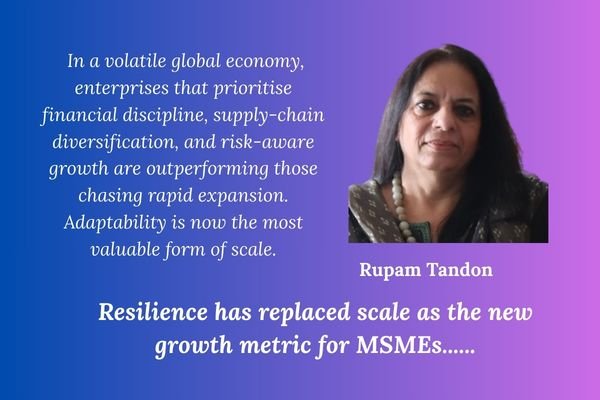The rapid rise of e-commerce has revolutionized the retail industry, offering consumers convenience and a wide range of products. However, this growth has come at a cost to India’s small traders and Micro, Small, and Medium Enterprises (MSMEs), who are struggling to compete against large online platforms that often engage in unfair practices. This has led to growing calls for a comprehensive e-commerce policy to ensure fair competition and protect the interests of small businesses.
Challenges Facing Small Traders in the E-commerce Era
As digital platforms expand their reach, local retailers and MSMEs are finding themselves at a significant disadvantage. Several key issues have emerged:
- Price Wars and Deep Discounts: Large e-commerce platforms often employ deep discounting strategies, offering products at prices that small traders cannot match. This practice creates a highly uneven playing field, driving customers away from local businesses and hurting their profitability.
- Preferential Treatment: Many e-commerce platforms engage in practices such as preferential listings and exclusive partnerships with select sellers, further marginalizing small traders who rely on these platforms for visibility and sales.
- Lack of Market Neutrality: These platforms, instead of acting as neutral intermediaries, often favor certain brands or sellers, creating an unfair market environment. Small traders are left with little recourse, as their products get sidelined in favor of those with preferential treatment.

The Need for a Comprehensive E-commerce Policy
To address these challenges, a clear and structured e-commerce policy is urgently needed. Such a policy should include:
- Fair Competition Regulations: E-commerce platforms should be required to operate as neutral intermediaries, giving all sellers equal opportunities to list and sell products. This would prevent larger players from gaining an unfair advantage over smaller businesses.
- Transparent Business Practices: Transparency in how products and sellers are ranked and listed on these platforms is essential. Small businesses should have access to clear guidelines and be treated equally, without hidden preferences for larger sellers.
- Regulation of Pricing Practices: To prevent large platforms from using predatory pricing to undercut small businesses, clear pricing regulations should be introduced. This would curb deep discounting that harms small traders and ensure fair pricing for consumers and businesses alike.
- Protection of Data and Fair Use: As e-commerce platforms collect vast amounts of data, there must be policies in place to prevent the misuse of this data to disadvantage smaller sellers. Ensuring that data is used fairly is crucial for creating a competitive and balanced market.
The Role of Government and Competition Authorities
Recent reports from the Competition Commission of India (CCI) have highlighted concerns about anti-competitive practices by some e-commerce platforms, such as colluding with select sellers and engaging in preferential treatment. This underscores the need for stronger regulatory oversight to ensure that these platforms operate within the bounds of fair competition laws.
Additionally, calls for action from various trade bodies and representatives of small businesses have emphasized the growing urgency of the situation. The introduction of a well-structured policy framework would help protect small traders, support MSMEs, and ensure a more equitable digital marketplace.

Ensuring Fair Competition in E-commerce
The rapid growth of e-commerce presents both opportunities and challenges. While it has made shopping more convenient for consumers, it has also created significant hurdles for small traders and MSMEs. A comprehensive e-commerce policy is essential to ensure fair competition, protect small businesses, and maintain the diversity of India’s retail landscape.
By addressing issues such as market neutrality, pricing practices, and data protection, India can create a level playing field where all businesses—regardless of size—can thrive. The government’s role in crafting and enforcing these regulations will be crucial in shaping the future of the country’s retail sector, ensuring that the benefits of e-commerce growth are shared by all.
Author Profile
-
Dr. Perumal Koshy is Editor of Global SME News and Director of Strategic Initiatives at Enterprise Futures Lab. He writes on MSMEs, enterprise development, and policy issues affecting small business ecosystems.
Linkedin: https://www.linkedin.com/in/caushie/
Twitter: https://twitter.com/pkoshyin
Latest entries
 FEATURED25 November 2024Rethinking Work Hours: The Case for Balance in SME Growth Strategies?
FEATURED25 November 2024Rethinking Work Hours: The Case for Balance in SME Growth Strategies? AI25 November 2024Microsoft’s ‘Zero Day Quest’: A $4 Million Challenge to Revolutionize AI and Cloud Security!
AI25 November 2024Microsoft’s ‘Zero Day Quest’: A $4 Million Challenge to Revolutionize AI and Cloud Security! FEATURED5 November 2024Collaboration Agreement Signed Between Mubadala Energy and Perusahaan Listrik Negara (PLN) to Explore Harnessing Natural Gas Discoveries
FEATURED5 November 2024Collaboration Agreement Signed Between Mubadala Energy and Perusahaan Listrik Negara (PLN) to Explore Harnessing Natural Gas DiscoveriesFEATURED23 October 2024Resilient Trade Amid Global Uncertainty: How Intra-BRICS Commerce is Shaping a New Economic Order








